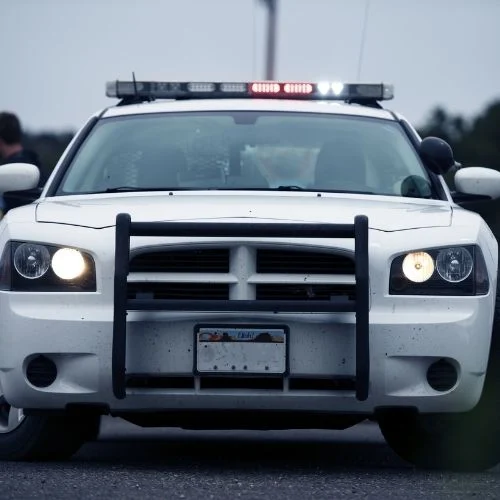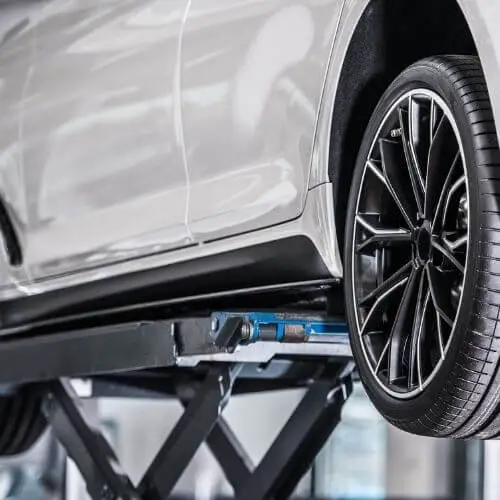If you are reading this post, then there is a good chance that you are a victim of catalytic converter theft. If so, I am so sorry to hear that. I know the anger and frustration that you feel. As a retired police officer, I have seen hundreds of vehicle owners go through the same thing over the years. And unfortunately, due to several reasons, catalytic converter theft is expected to get worse before it gets better.
If your catalytic converter has been stolen, the first thing you should do is notify your local police department and make a police report. Then, notify your insurance company to see if catalytic converter theft is covered under your automobile insurance policy.
In this article, I cover why quick action is needed, and the exact steps to follow if your catalytic converter was stolen.
I will also share a few resources you can use to prevent catalytic converter theft in the future. You have to protect your new catalytic converter. I have talked to victims who were targeted again a few weeks after their initial catalytic converter replacement.
Recommended steps if your catalytic converter is stolen
Here is a step-by-step list of what to do if your catalytic converter is stolen.
Do not confront catalytic converter thieves
Never confront catalytic converter thieves directly. You never know the mindset and desperation of the person you are confronting and whether or not they are armed.
Recently, an off-duty Sheriff’s Deputy in Texas was shot and killed after he confronted three men stealing catalytic converters in a parking lot. Another man was shot recently after confronting catalytic converter thieves in St. Paul, Minnesota.
People steal catalytic converters for a lot of reasons, but many catalytic converters are stolen by people trying to obtain quick cash for drug money. They do not want to be caught because in many states it is a felony, especially if they are in possession of multiple stolen auto parts such as these.
If you witness a catalytic converter theft, call the police from a safe location and give a description of the parties involved and any vehicles they may be driving. Do not attempt to follow them. Focus on early law enforcement notification and being a great witness.
Notify your local law enforcement agency
As soon as you discover that you are a victim of catalytic converter theft, immediately notify your local law enforcement agency and file a police report. Do it as soon as possible.
Here’s why.
I have heard from many citizens who hesitated to report stolen catalytic converters and other theft because they figure the police are too busy or it won’t do any good. The damage has been done and it is not likely you will be able to reattach a stolen catalytic converter even if recovered. So what’s the point? Many will wait and only file a report if their insurance company requires it.

While the police can’t be everywhere at once, most departments do track areas where high theft occurs. This information is largely based on police reports. Officers try to patrol these areas more frequently. The quick notification also allows available police units to canvas the area in the hopes of catching them in the act.
In some cases, if theft is especially high, undercover officers or detectives will work that area more frequently. When possible they go to the scrapyards or recycling centers in your area to see if any catalytic converters have been sold and if so, ask to see surveillance cameras or get suspect descriptions or other identifying information.
The more police know about it, the more likely something can be done. So while the officer taking your report may not be able to do anything about it that minute, the data collected is useful to help prevent catalytic converter theft in your area.
If the theft occurred in the area where security cameras are available, check with the camera’s owners as soon as you can in case the video can be saved. Some surveillance systems only keep the data for a short period of time, while more modern systems often get backed up online.
Check with your car insurance carrier
After notifying local law enforcement, the next step is to contact your insurance agent or claims center to see what coverage you have on your vehicle. Most major insurance companies cover catalytic converter theft (at least the first occurrence) if the vehicle owner carries comprehensive insurance on the vehicle.
If the vehicle is covered, follow the instructions per the claim process to identify any deductibles, and the next steps to get repair estimates. Depending on your vehicle, catalytic converter replacement can cost several hundred if not a few thousand dollars depending on the cost of replacement parts.
Seek out a licensed repair shop
Licensed auto mechanics and muffler shops will be able to replace your catalytic converter and do so in a way that will have your vehicle running optimally as well as make sure your vehicle’s exhaust system passes any smog checks or emissions tests should you live in a state that requires one.
Some people choose to not replace their stolen catalytic converter and instead install a test pipe, also known as a straight pipe, however installing one as a permanent solution is illegal in all 50 states and can lead to costly fines if caught. A licensed mechanic will not be able to install one for you anyways due to state, local, and federal laws.

If you are looking to save money on your catalytic converter replacement, be sure to ask your mechanic about aftermarket catalytic converters that still meet your state and federal requirements. In some cases, these can be over 50% cheaper than their OEM (Original Equipment Manufacturer) counterparts.
Catalytic converter thefts are expensive to repair, so don’t hesitate to reach out to a few shops for comparable quotes. Often your vehicle will need other repairs depending on where the catalytic converter was cut out and the damage involved. Make sure your estimate has an itemized breakdown for other things being repaired such as oxygen sensors, exhaust pipe replacement, or other parts of your exhaust system so there aren’t other hidden charges that sometimes pop up once your vehicle is up on a lift.
Protect your vehicle from catalytic converter theft
Once your catalytic converter has been replaced the next step is to take action to prevent your catalytic converter from being stolen again. If the thieves know you drive a popular vehicle, chances are they would love nothing more than to come back a few weeks later and target it again.
The best way to protect cars or SUVs is to keep your vehicles inside a closed garage. If that is not possible, park close, and consider installing a catalytic converter theft shield.
If one is not available for your vehicle, you can check your local muffler shop to see if a cage can be fabricated or another type of theft prevention device can be installed.
Another thing you can do is paint your catalytic converter with bright orange high-temperature paint and etch your car’s vehicle identification number into it using a simple engraver tool.
If your car is parked in your driveway, consider motion-sensitive lights, and other theft prevention devices like alarms and cameras.
While these tips do not guarantee that your catalytic converter won’t be stolen, it greatly reduces your chance of being a victim. Many thieves will simply move on to easier targets. You can learn more about how to etch your catalytic converter here.
Hopefully, you have found this article helpful. Be sure to check out our other articles to help protect you and your vehicles.


